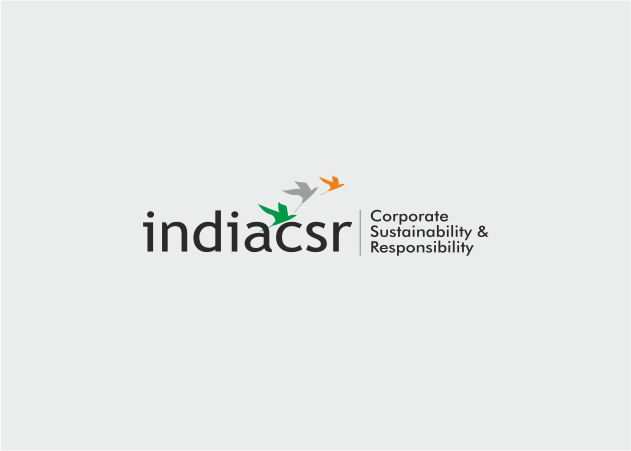NEW DELHI (India CSR): The Corporate Social Responsibility (CSR) policy of Bandhan Bank articulates its goal to positively contribute toward the economic, environmental and social well-being of the marginalised communities through its CSR programme. The Bank has contributed Rs. 78.43 Crore towards 23 CSR programmes implemented through 10 Project Implementing Agencies (‘PIAs’).
These CSR programmes were spread across 671 project locations in 71 districts of 13 states in India.
The CSR initiatives reached out to 2,76,262 beneficiaries during the financial year, thereby taking the total beneficiaries to 20,74,603 individuals
Targeting the Hardcore Poor (THP)
Targetting the Hardcore Poor is the flagship programme of Bandhan. The programme is designed for ultra-poor women-headed households.
Through this programme, the beneficiaries are provided with a range of gainful micro-enterprises (in form of the farm, non-farm and mixed assets, non-cash) along with handholding support and training on confidence building, enterprise skills, consumer interaction, marketing and financial skills. They are also provided with a sustenance allowance to meet their daily needs until they start generating substantial income from the assets provided.
In a period of 18-24 months, these ultra-poor women start graduating, uplifting themselves from extreme poverty and getting linked to mainstream society.
During the financial year under review, the Bank has contributed Rs. 27.88 Crore (Rs. 18.20 Crore in FY 2020-21) towards the Targeting the Hardcore Poor (‘THP’)
programme of Bandhan Konnagar, an organization registered under the Societies of West Bengal Registration Act XXVI of 1961, Implementing Agency.
Also Read: CSR: Bandhan Bank supports Mangrove plantation of 67,540 saplings in Gujarat
The funds were utilised towards alleviating 27,600 ultra-poor women, who were provided assets to start their own petty businesses in farm, non-farm and mixed sectors to build their livelihoods. These ultra-poor women belonged to 18 districts of Assam, Jharkhand, Madhya Pradesh, Odisha and West Bengal.
The Bank appointed KPMG Assurance and Consulting Services LLP to carry out an independent Impact Assessment of the CSR Programmes of the Bank.
This Impact Assessment Study carried out by KPMG indicated that during the period 2016-2022, more than 29,000 women were alleviated from extreme poverty to above the national poverty line (Rs. 1,059.42 for rural and Rs. 1,286 for urban areas) with a significant increase in their income (at least an income of above Rs. 4,000 and average of Rs. 7,456 per month) and business assets and household assets. Additionally, these women had improved regular savings habits and access to
safe and secure shelter.
The bank contributed Rs. 18.49 Crore (Rs. 15.67 Crore in FY 2020-21) towards seven health programmes of five PIAs covering 35 districts in nine states of India. The health programmes of the PIAs supported by Bank covered 88,019 beneficiaries during the year.
Bandhan Bank’s journey is deeply entrenched in its dedication towards transforming lives and building communities.The Bank runs its CSR programmes through various CSR implementing agencies including Bandhan-Konnagar.
Each programme of Bandhan-Konnagar has been devised to bring about far-reaching effects in the fields of education, health, livelihood promotion, sustainable livelihood development, climate action, financial literacy, skill development and employment generation.
CSR Approach
Bandhan Bank limited (the ‘Bank’) is aware of its Corporate, Social and Environmental responsibilities and recognises that a good Corporate Social Responsibility (‘CSR’) policy leads to a better trusteeship of all stakeholders. The CSR of the Bank is not just philanthropy, but it is a strong commitment to contribute to social and environmental growth and prosperity and is pivotal to its business sustainability.
CSR Purpose
The purpose of the Bank’s CSR philosophy is to develop the community in which the Bank operates and make a sustainable improvement in the lives of economically, physically and socially challenged people living at the lower end of the society and initiate or support programmes that are aimed at creating conditions for better livelihoods in these communities.
The Bank shall also support measures that are aimed at preserving and enhancing the environment and natural resources. The CSR policy shall act as a
mechanism for regulating the CSR activities of the Bank and adhere to laws and regulations in force and adopt best practices.
CSR Vision
Aligned with the vision of the Bank, the CSR initiatives of the Bank shall continue to enhance value creation, improve the quality of life and inclusion of those who are not adequately and effectively serviced by the formal financial sector into the mainstream of the society and draw them into the cycle of growth by providing products and services and forming partnerships and alliances for the fulfilment of its role in the society as a responsible corporate.
CSR Programmes
The focus area of the CSR programmes of the Bank shall be the local areas served by the Bank and based on the prioritised needs of the local communities. The Bank may undertake any or all of the activities in the subject or the areas as mentioned in the Schedule VII of the Companies Act, 2013 (the ‘Act’), including the following:
a. Healthcare: Preventive Health, Nutrition and Food Security, Sanitation and Safe Drinking Water
b. Education: Financial and Digital Literacy, Skill Development and Sustainable Livelihoods for underprivileged children, women, youths and persons with disabilities
c. Reducing Inequalities and promoting gender equality: Women empowerment, empowering persons with disabilities and such measures that reduce inequalities faced by socially and economically backward groups
d. Environment protection: Natural Resource Management and conservation, and Climate Change mitigation and adaptations
e. Rural area and Slum Area Development: Improving infrastructure and living conditions, and sustainable agriculture.
f. Disaster Management and relief operations



























